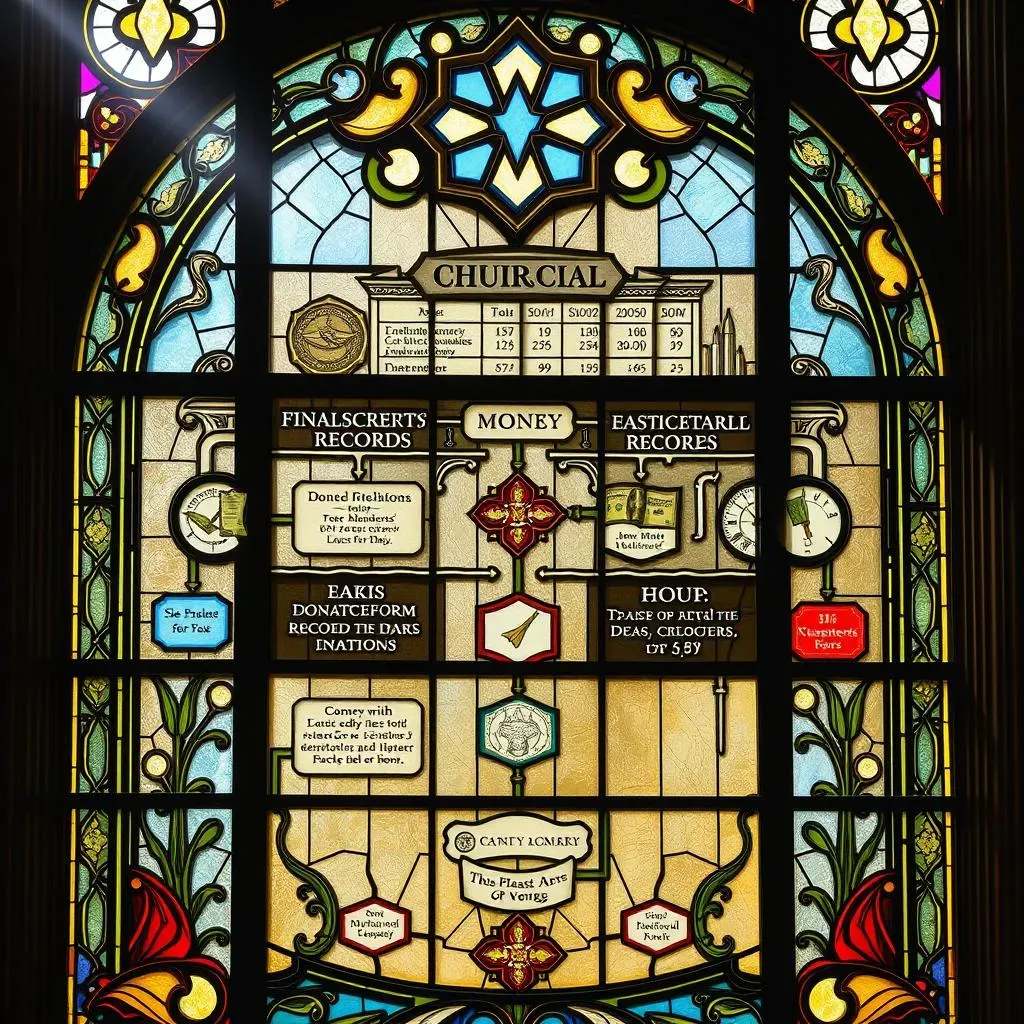Table of Contents
Raising funds for your church is vital, but navigating the legal landscape can feel like walking a tightrope. This article serves as your comprehensive guide to church fundraising legal considerations, equipping you with the knowledge and resources to ensure your fundraising efforts are both successful and compliant. We'll explore essential legal aspects, emphasizing financial transparency and accountability. Understanding these "Church fundraising legal considerations" is not just about avoiding penalties; it's about building trust with your congregation and donors, fostering a stronger community, and ensuring your funds are used effectively to further your mission. We'll cover key legal requirements, best practices for financial management, and strategies for maintaining transparency. By the end, you'll have a clear understanding of how to navigate the legal and ethical complexities of church fundraising, empowering you to confidently pursue your fundraising goals while upholding the highest standards of integrity. Let's embark on this journey together, transforming potential challenges into opportunities for growth and strengthening your church's future.
Essential Legal Considerations for Church Fundraising

Essential Legal Considerations for Church Fundraising
Tax-Exempt Status and Reporting
First off, let's talk about your church's tax-exempt status. This is HUGE. Maintaining it means adhering to strict guidelines, ensuring all your fundraising activities align with your religious mission. Think of it like this: you're playing by a specific set of rules to keep the game fair and square. The IRS is watching, and any deviation could lead to some serious consequences, including hefty fines or even losing your tax-exempt status altogether. This means careful record-keeping is essential – meticulously documenting every donation, expense, and activity. Remember, transparency is key here. It's not just about complying with the law; it's about building trust with your donors and the community. Need help understanding the specifics? Check out our FAQ on church fundraising FAQs.
For example, if you're planning a major fundraising event, ensure it directly supports your church's religious or charitable purpose. A bake sale to raise funds for a new youth program is perfectly acceptable. However, using funds raised for unrelated business ventures could jeopardize your tax-exempt status. The line can sometimes be blurry, so it's always best to err on the side of caution and seek professional advice when unsure.
- Maintain meticulous financial records
- Ensure all activities align with your religious mission
- Seek professional advice when needed
State and Local Regulations for Fundraising
Beyond federal regulations, remember that state and local laws also govern charitable solicitations. Each state has its own rules regarding registration, reporting requirements, and permissible fundraising activities. Think of it as navigating different terrains – you need a different map for each state. Ignoring these local regulations could lead to significant legal headaches, potentially resulting in fines or legal action. Before launching any fundraising campaign, research your state's specific laws and ensure your church is compliant. This might involve registering with the state's charity bureau or obtaining necessary permits for certain events, like raffles or auctions. For a detailed breakdown of state-specific regulations, take a look at our guide to church fundraising regulations in the United States.
For instance, some states require charities to register before soliciting donations, while others might have stricter rules about the types of fundraising events allowed. Failing to comply with these regulations can lead to serious legal trouble. Again, consulting with legal counsel is always a wise move. They can guide you through the complexities of local laws, ensuring you're on solid legal ground.
State | Registration Requirement | Permit Requirements |
|---|---|---|
California | Yes | Varies by event type |
Texas | No | Varies by event type |
New York | Yes | Varies by event type |
Financial Transparency and Accountability in Church Fundraising

Financial Transparency and Accountability in Church Fundraising
Clear and Consistent Financial Reporting
Transparency isn't just a buzzword; it's the bedrock of trust. When it comes to church finances, clear and consistent reporting is paramount. Think of it as an open book – donors and congregants should easily understand how funds are being managed. Regularly publish financial statements, detailing income, expenses, and the allocation of funds for specific projects or programs. This could be through newsletters, church websites, or even dedicated financial reports. Consider using simple, easy-to-understand language, avoiding jargon that might confuse people. Remember, the goal is to build confidence and show everyone that their contributions are being handled responsibly. For ideas on boosting transparency, check out our post on best practices for church fundraising campaigns.
For example, if your church is raising funds for a new building, provide regular updates on construction costs, material purchases, and the overall budget. This keeps everyone informed and shows that you're accountable for every penny. Transparency also builds trust and encourages future donations.
- Publish regular financial reports
- Use clear and concise language
- Highlight specific projects and their funding
Robust Internal Controls and Audits
Imagine a well-oiled machine – that's what you want your church's financial system to be. Robust internal controls are essential to prevent fraud, errors, and mismanagement. This involves separating duties, so no single person has complete control over all aspects of finances. Implement a system of checks and balances, with multiple individuals involved in authorizing transactions and reviewing financial records. Regularly conduct internal audits, and consider engaging an independent auditor to provide an external review. This demonstrates your commitment to financial accountability and builds trust with donors. For more on strengthening financial controls, see our article on church fundraising challenges and solutions.
Think of it like this: a regular audit is like a health check-up for your church's finances. It helps to identify any potential issues early on, before they become major problems. It also demonstrates your church's commitment to financial responsibility and transparency to donors and the community.
Control Measure | Description | Benefit |
|---|---|---|
Segregation of Duties | Different people handle different aspects of finances | Reduces fraud risk |
Regular Bank Reconciliations | Comparing bank statements with internal records | Ensures accuracy |
Annual Audits | Independent review of financial records | Builds donor confidence |
Donor Acknowledgements and Stewardship
Donors aren't just giving money; they're investing in your church's mission. Show your appreciation by providing timely and detailed acknowledgements for every donation. This is not only a courtesy but also a legal requirement for larger donations. Provide donors with clear receipts that meet IRS guidelines, specifying the date of the donation, the amount, and how the funds will be used. Regularly communicate with your donors, providing updates on the progress of projects funded by their generosity. This ongoing stewardship strengthens relationships and fosters a sense of partnership. For inspiration on showing gratitude, explore our ideas on writing a church fundraising letter.
Remember, donor stewardship isn't a one-time event; it's an ongoing process of building and maintaining relationships. It’s about showing your donors that you value their contribution and that their generosity is making a real difference. This helps to foster a sense of community and encourages future giving.
Best Practices and Resources for Church Fundraising Legal Considerations

Best Practices and Resources for Church Fundraising Legal Considerations
Best Practices for Legal Compliance
So, you've got the basics down – fantastic! Now let's talk strategy. Proactive compliance is your best friend. Don't wait for problems to arise; build a strong foundation of legal understanding from the start. This means having a clear gift acceptance policy, outlining what types of donations your church will accept and how they'll be handled. It also means staying updated on changes in tax laws and regulations. Regularly review your church's financial procedures to ensure they're up to date and compliant. Think of it as preventative maintenance for your church's financial health. For more tips on staying ahead of the curve, check out our guide on best fundraising practices.
Consider creating a checklist for your fundraising events. This checklist should include all the necessary permits, licenses, and insurance requirements. It should also outline steps for ensuring transparency and accountability in all financial transactions. This proactive approach will help you avoid potential legal issues and maintain the trust of your donors and the community. A well-structured checklist will also streamline your fundraising processes, making them more efficient and less stressful.
- Develop a comprehensive gift acceptance policy
- Stay updated on tax laws and regulations
- Regularly review financial procedures
- Create checklists for fundraising events
Valuable Resources for Church Fundraising
Navigating the legal aspects of church fundraising can be daunting, but you don't have to do it alone! There are many resources available to help you. Start with the IRS website; they have tons of information on tax-exempt organizations and the rules surrounding charitable donations. Your state's attorney general's office is another great resource. They often have specific guidelines for charitable fundraising within your state. Don't hesitate to consult with legal and financial professionals who specialize in nonprofit organizations. They can provide personalized guidance and help you navigate any complex situations. For a starting point, consider reviewing our frequently asked questions about church fundraising.
Remember, seeking professional advice isn't a sign of weakness; it's a sign of responsible stewardship. It's always better to be proactive and ensure you're on solid legal ground than to face potential problems down the road. Consider attending workshops or conferences focused on nonprofit finance and legal compliance. Networking with other church leaders can also provide valuable insights and support. These resources can help you stay informed and confident in your fundraising efforts.
Resource | Description | How it Helps |
|---|---|---|
IRS Website | Information on tax-exempt organizations | Understanding tax compliance |
State Attorney General's Office | State-specific fundraising guidelines | Ensuring state compliance |
Legal and Financial Professionals | Personalized guidance | Navigating complex situations |
